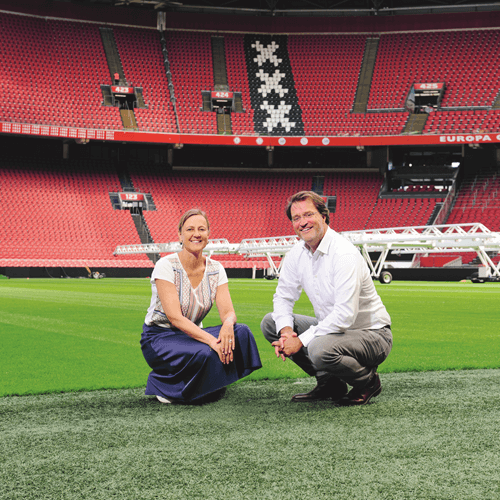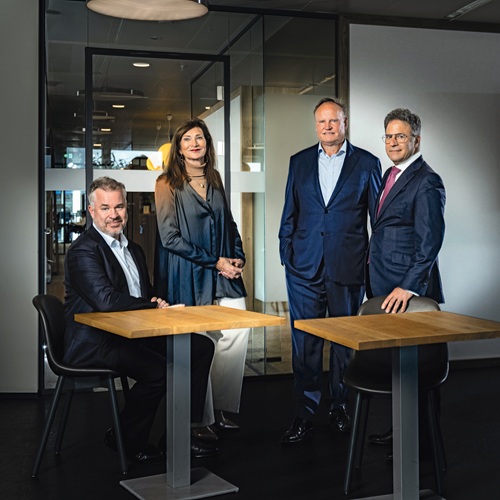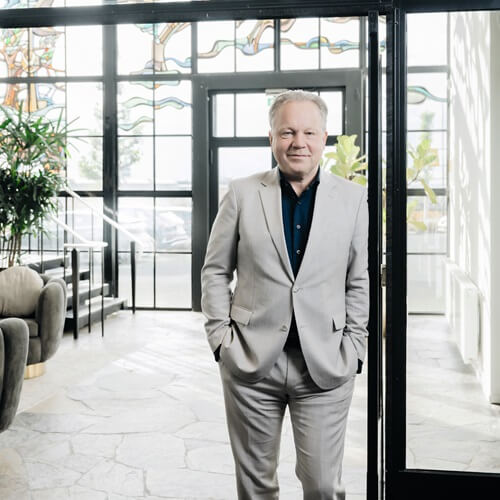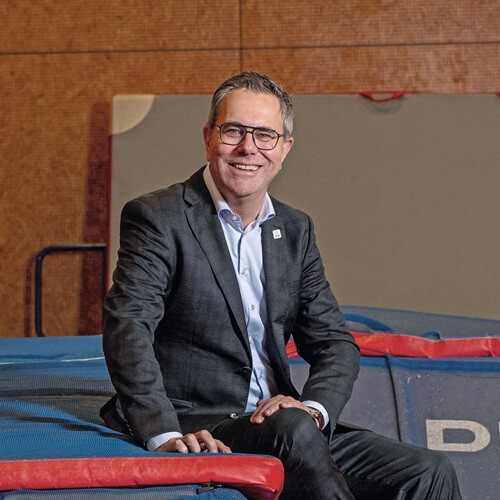Leadership
What is leadership? One means of approaching this question is by noting that leadership is without doubt the most discussed boardroom topic. By far. Everyone has an opinion about their own ‘boss’ and almost as often about – in gaming terminology – the ‘final boss’ : the managing director, or, in a corporate, an executive from the C-suite: a COO, CDO, CIO, CFO, CRO, or ultimately the CEO: the chief executive officer.
In such a conversation about the boss, it is usually about the many facets of leadership. What characteristics make a leader a good leader, a strong and powerful leader, or a mediocre or even arrogant boss? he following assessment is usually made: what is she/he good at, and what is she/he not good at? Many leaders clearly have weak points, but if the strong points sides are strong enough, people will still support ‘their’ leader. At least, that is what psychologists and leadership coaches claim.
Business programmes and management book classicsYou can practice becoming a better leader. Every self-respecting business school and university develops programmes, and hundreds of books and thousands of other publications have been published with the aim of improving leadership skills: by changing or mitigating the weak points and developing the strong ones. These publications are often eagerly sought after. The classic The Seven Habits of Highly Effective People by the American author Stephen Covey has sold more than 25 million copies in 40 languages. The audio version has sold 1.5 million copies. It is no coincidence that this book is a source of inspiration for many leaders. Leadership is also a major theme for Management Scope. Indeed, Management Scope focuses primarily on the CEOs of Dutch corporate companies and on their stakeholders: those who are in direct contact with the CEO, the C-suite. These include members of the executive committee (the ExCo) but also, for example, a company secretary, the members of the supervisory board or a chief sustainability officer. Increasingly, executives are specialists who occupy themselves with one facet of management. Several authors focus on executive education and on the psychological side of leadership. And on what is known as the ‘boardroom dynamics’: how do you create an efficient leadership team – one in which bodies such as the executive board, executive committee (ExCo) and supervisory board function well and also cooperate well?
Diversity in the boardroomLeadership also shows clear developments. For example, diversity in executive and supervisory boards has been a major theme in recent decades. For some 20 years now, women have been steadily taking up more prominent positions in boardrooms. Management Scope, too, is committed to diversity. Every year Management Scope publishes the Top 100 Corporate Women in the Netherlands, inter alia. The female role models in Dutch management are put in the spotlight through this list. Another theme is inclusion. How do you ensure that in the top of the organization – as well as in the layers below – there is room for the opinions and thoughts of bicultural and other cultural leaders? Incidentally, this development is absolutely vital. As Dutch society has embraced more and more nationalities and cultures, consumer behaviour is also changing. Companies can hardly get a grip on these social trends unless they themselves embrace different leadership: in other words, inclusion.
Transformational and responsible leadershipLast but not least, the rise of transformational leadership and responsible leadership in the boardroom should be mentioned. The rapid developments surrounding the digital transformation mean that many companies are having to innovate at an ever-increasing pace and even transform their entire business model. Hence: transformational leadership. What leader has the qualities to really take his team on a journey, where existing rules are set aside and innovation is embraced? Change is difficult for everyone. A good leader must not only be able to ‘jump over his own shadow’ but must also be able to do so on behalf of the entire team, undoubtedly assisted by an expert HR department. Workforce management – what kind of people do I have, and what are they capable of, also on a human level? – is becoming increasingly important. Responsible leadership is perhaps the most remarkable trend. Stakeholders increasingly expect companies and other organizations to know and measure their impact on society and even to have a clear purpose, a right to exist. There is no time to waste for the leaders of our corporates.


Millennial leaders are warming up – and here is what you can expect
With the millennial generation knocking on the door, boardrooms in the Netherlands are hearing a new voice. While boards are still largely dominated by Generation X (1965–1980), millennials (1981–1996) are increasingly joining boards of directors. This heralds a different era of leadership, a development that sparks curiosity. Seven young leaders offer insight into the millennial mindset.
Read more‘Run at least twice as fast!’ This warning from the Red Queen in Alice in Wonderland is more than a literary metaphor, it is the harsh reality for modern organizations. In the land of the Red Queen, you have to run fast to stay in the same place, and even faster to get anywhere. Companies that stand still fall behind. If they continue to follow the old formula, they lose market share to agile newcomers without baggage. Modern leaders know this and succeed in keeping their organizations agile, writes Ralf Knegtmans of De Vroedt & Thierry, part of Boer & Croon. He notes that the focus in leadership selection is gradually shifting from knowledge and experience to character.
Kaya de Lange (38), CEO of pension provider BeFrank, is the winner of the Young Captain Award 2025, a prestigious award for promising leaders. The jury praised her vision, authenticity, decisiveness, and ability to connect people. The latter can sometimes be a pitfall: ‘I sometimes tend to be too consensus-seeking.’
Leadership in the digital age
‘Run at least twice as fast!’ This warning from the Red Queen in Alice in Wonderland is more than a literary metaphor, it is the harsh reality for modern organizations. In the land of the Red Queen, you have to run fast to stay in the same place, and even faster to get anywhere. Companies that stand still fall behind. If they continue to follow the old formula, they lose market share to agile newcomers without baggage. Modern leaders know this and succeed in keeping their organizations agile, writes Ralf Knegtmans of De Vroedt & Thierry, part of Boer & Croon. He notes that the focus in leadership selection is gradually shifting from knowledge and experience to character.
Kaya de Lange (BeFrank): ‘A leader needs both reason and intuition’
Kaya de Lange (38), CEO of pension provider BeFrank, is the winner of the Young Captain Award 2025, a prestigious award for promising leaders. The jury praised her vision, authenticity, decisiveness, and ability to connect people. The latter can sometimes be a pitfall: ‘I sometimes tend to be too consensus-seeking.’
It is time to stop telling women that they are insecure. Instead, companies would be better off focusing their attention on changing the systems that make women insecure, writes Maartje Laterveer.
in memoriam Daphne PrieckaertsA month ago, we wrote about a colleague who was unexpectedly admitted to the ICU of the VUmc with acute leukemia. We wrote, "As we write this, we do not yet know whether she will make it to step 2". She passed away three days later. What we did not write a month ago was that the colleague was Daphne Prieckaerts: the mother of ftrprf, the mother of our shareholders, and my partner in all aspects of my life for 42 years.
In the second year of the ‘Verdiepte Governance’ (Deepened Governance) project, more and more directors have become convinced that ethical reflection belongs in the boardroom. Those who are true to their principles can link professional tasks to long-term value creation goals. Governance trainers Esther de Jong (NCD) and Menno Maas (TIAS School for Business and Society) see that directors have a need for this, but that they are unsure how to combine personal values and standards with the interests of the company. ‘We teach them to make that connection.’
‘Insecure women’ as a convenient and dangerous argument
It is time to stop telling women that they are insecure. Instead, companies would be better off focusing their attention on changing the systems that make women insecure, writes Maartje Laterveer.
Living as if your life depends on it
in memoriam Daphne PrieckaertsA month ago, we wrote about a colleague who was unexpectedly admitted to the ICU of the VUmc with acute leukemia. We wrote, "As we write this, we do not yet know whether she will make it to step 2". She passed away three days later. What we did not write a month ago was that the colleague was Daphne Prieckaerts: the mother of ftrprf, the mother of our shareholders, and my partner in all aspects of my life for 42 years.
‘Demonstrating and implementing moral leadership’
In the second year of the ‘Verdiepte Governance’ (Deepened Governance) project, more and more directors have become convinced that ethical reflection belongs in the boardroom. Those who are true to their principles can link professional tasks to long-term value creation goals. Governance trainers Esther de Jong (NCD) and Menno Maas (TIAS School for Business and Society) see that directors have a need for this, but that they are unsure how to combine personal values and standards with the interests of the company. ‘We teach them to make that connection.’

Why moral imagination is decisive now
We are at a crossroads in history. On the one hand, we face a world of chaos, where democracies collapse, nature succumbs, and inequality tears societies apart. On the other, we can embrace a future that can be brighter than anything we know now. Which direction we take depends on the choices we make today, according to associate professor of transformative imagination, Joost Vervoort. The role of companies and their executives in this cannot be overstated.
Read moreMost read
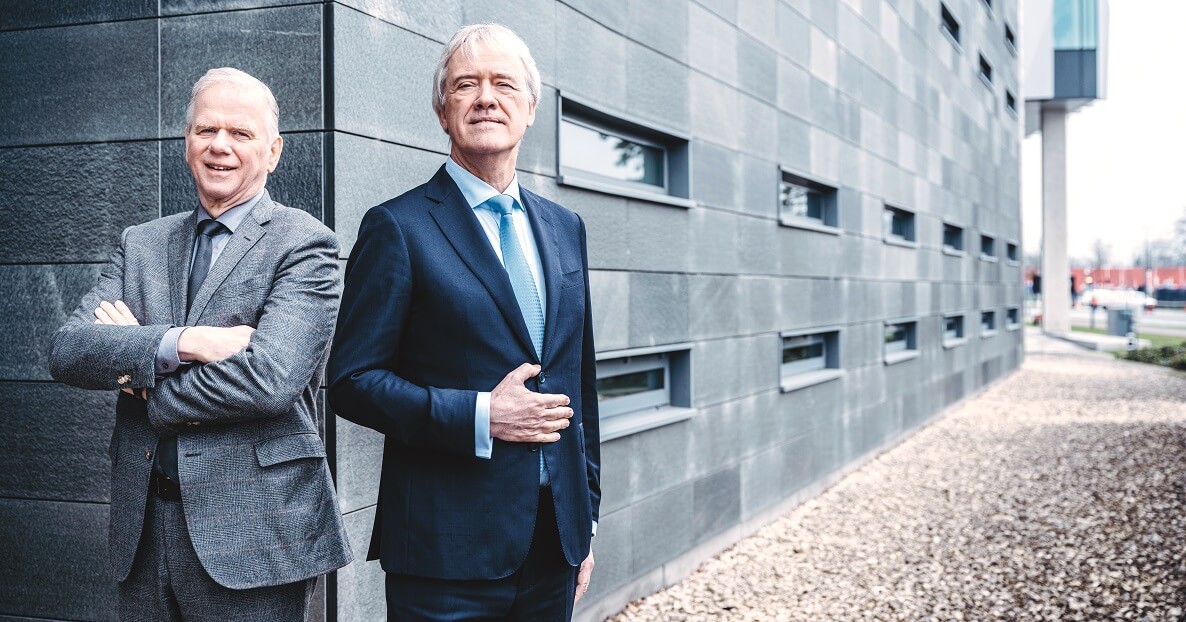
Farewell Interview Martin van den Brink and Peter Wennink: ‘ASML Remains a Very Dutch Company’
The legendary leaders of semiconductor equipment manufacturer ASML, are retiring. A very good reason to engage in an exclusive conversation with the co-presidents Martin van den Brink and Peter Wennink on everything that contributed to their evolution into a global player.

Carsten Bittner (ABN Amro): ‘Do As The Dutch Do’
The German CI&TO (Chief Information and Technology officer) of ABN AMRO needs to take cognizance of the differences between the Dutch and German cultures. His observation is that these are not that significant. ‘Nuances do exist, of course, and, as a director, it is important to take heed of these.’
Jacques van den Broek: ‘Without a flourishing business community, we have a long-term problem’


Dimitri de Vreeze (dsm-firmenich): ‘Blindly accepting assumptions is the biggest mistake you can make’
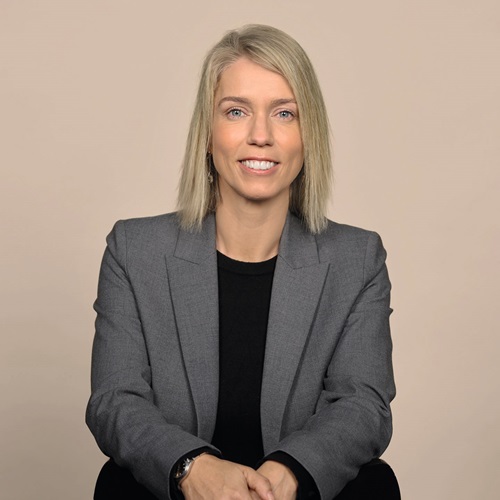
The first 100 days as CSO of Ahold Delhaize

Frans Everts (Shell Netherlands): ‘The market demand is not there yet’

George Tokaya (Philips): ‘This award confirms that my way can also work’
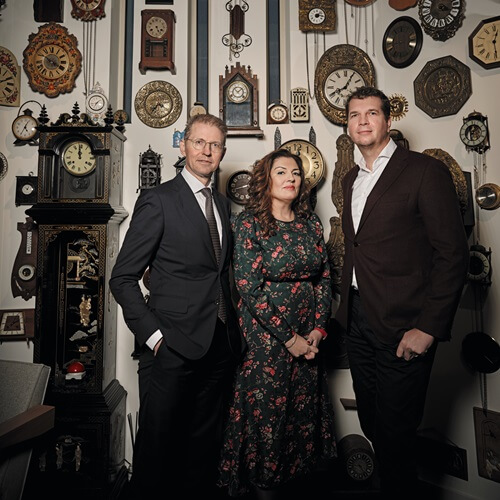
Sander Dekker and Maarten Otto: ‘We should not allow ourselves to be overly distracted by The Hague'

Dustin Woodward (FrieslandCampina): 'Focus on things that truly make a difference'
NOC*NSF director Marc van den Tweel is on a mission to make the Netherlands the most active and sports-minded nation in the world. He believes in the far-reaching impact of a robust sports culture and is dedicated to fostering positive change both within NOC*NSF and beyond. ‘Our relationship with business has deepened significantly. We are not talking about sponsorship or revenue exclusively but also about societal issues, such as inclusive employment practices.’
Working methodically, trusting your staff and being genuinely interested. For former professional soccer player Michael Reiziger, now coach of the Netherlands national under-21 team ‘Jong Oranje’, these are the key words of leadership and team development. As in business, everything revolves around collaboration, complementarity and strategy. ‘Central is our playing style: it defines how we want to play soccer. If we execute that plan effectively, we will win.’
Marc van den Tweel (NOC*NSF): ‘Bottom line is the will to Excel’
NOC*NSF director Marc van den Tweel is on a mission to make the Netherlands the most active and sports-minded nation in the world. He believes in the far-reaching impact of a robust sports culture and is dedicated to fostering positive change both within NOC*NSF and beyond. ‘Our relationship with business has deepened significantly. We are not talking about sponsorship or revenue exclusively but also about societal issues, such as inclusive employment practices.’
Michael Reiziger (Jong Oranje): ‘Put the Team First, not Yourself’
Working methodically, trusting your staff and being genuinely interested. For former professional soccer player Michael Reiziger, now coach of the Netherlands national under-21 team ‘Jong Oranje’, these are the key words of leadership and team development. As in business, everything revolves around collaboration, complementarity and strategy. ‘Central is our playing style: it defines how we want to play soccer. If we execute that plan effectively, we will win.’

Employee Well-being begins with Leader Well-being
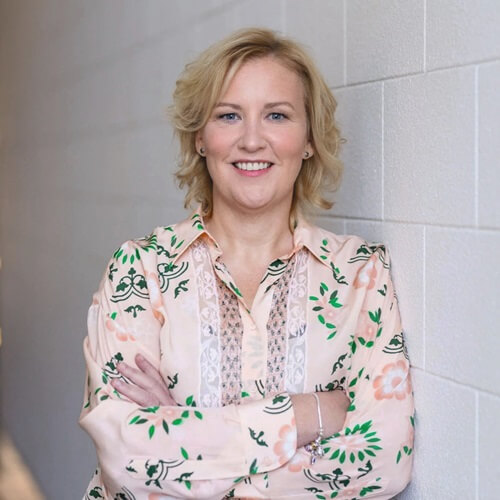
An Lommers (ASML): ‘Fortunately, I have not lost the ability to question myself’

Jeroen Smit on Fear and Courage

Pinar Abay (ING): ‘My Appointment Was a Bold Move for the Bank’

Jan Rotmans: 'Without Faith in Progress, It Will Not Work'
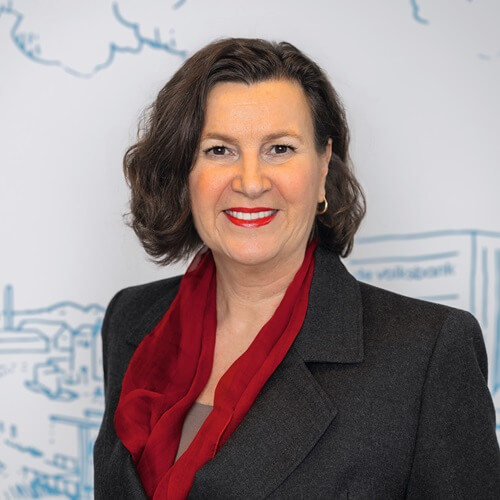

.jpg)

